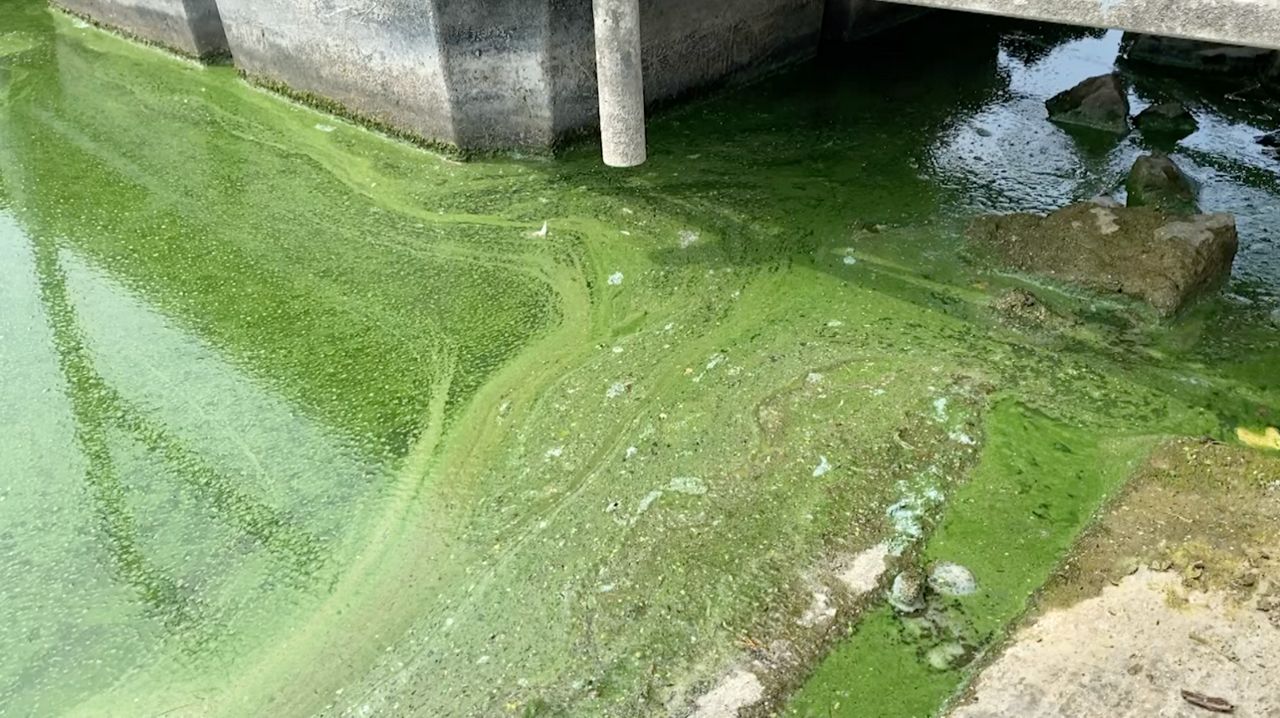WINTER HAVEN, Fla. — The Florida Department of Health in Polk County has issued a health alert regarding harmful blue-green algal toxins recently found in Lake Henry.
Officials with the department are urging people to be careful in and around Lake Henry-South.
A water sample was taken on Oct. 13, which prompted the alert.
Florida Department of Health officials are asking people to take the following precautions:
- Do not drink, swim, wade, use personal watercraft, water ski or boat in waters where there is a visible bloom.
- Wash your skin and clothing with soap and water if you have contact with algae or discolored or smelly water.
- Keep pets away from the area. Waters where there are algae blooms are not safe for animals. Pets and livestock should have a different source of water when algae blooms are present.
- Do not cook or clean dishes with water contaminated by algae blooms. Boiling the water will not eliminate the toxins.
- Eating fillets from healthy fish caught in freshwater lakes experiencing blooms is safe. Rinse fish fillets with tap or bottled water, throw out the guts and cook fish well.
- Do not eat shellfish from waters with algae blooms.
According to the officials with the department, blue-green algae are a type of bacteria that is commonly found in Florida’s freshwater environments. They say a bloom can happen when rapid growth of algae leads to an accumulation of individual cells that discolor water and often produce floating mats that emit unpleasant odors.
Many types of blue-green algae can produce toxins, officials said.
Environmental factors can contribute to blue-green algae blooms, officials added, which include sunny days, warm water temperatures, still water conditions and excess nutrients. Department officials said that while blooms can appear year-round, they are more frequent in the summer and fall.
Blue-green algae blooms can affect human health and ecosystems, including fish and other aquatic animals, according to the department.
To report an algal bloom sighting, contact the Florida Department of Environmental Protection at 855-305-3903. For additional information on potential health effects of algal blooms, click here.



